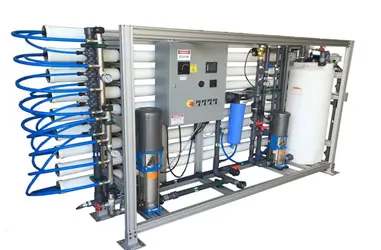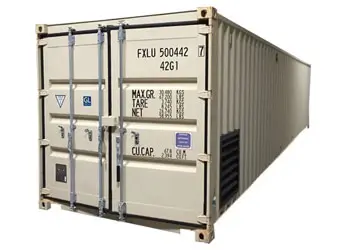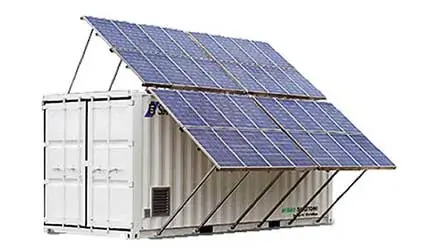Reverse Osmosis & Water Filtration System For BOILERS
Good quality feed water for boilers is essential, it can assure a continuous heat exchange, prevent or control corrosion and can produce a good quality steam. Feed water for boilers can be treated with:
WHY YOU NEED REVERSE OSMOSIS SYSTEMS WITH BOILERS
Reverse osmosis purification is required for the maximum functioning of most boiler systems, even if they are just used for heating.
For example, if you utilize water for food service or brewing, reverse osmosis assures that the hot water is both consumable and won’t alter the flavor of your product.
When water boils, it transforms to steam and disperses as gas into the atmosphere. The salt and other minerals, on the other hand, do not evaporate as quickly as water. These minerals may build up within the boiler system as scales over time, causing “hot spots,” blockages, and inefficient performance at best, and system failure at worst. Reverse osmosis eliminates minerals from the water before it enters the feedwater tank, allowing the boiler to function more efficiently.
Mastering Boiler Efficiency: Strategies and Techniques
Before diving into optimization techniques, it’s essential to grasp the concept of boiler efficiency. Boiler efficiency is a measure of how effectively a boiler converts fuel into usable heat. It is typically expressed as a percentage and represents the ratio of heat output to the heat input. The higher the efficiency, the less fuel is required to produce the same amount of heat, resulting in cost savings and reduced emissions.
The type and quality of fuel used significantly impact boiler performance. Clean, high-quality fuel burns more efficiently, minimizing waste and maximizing heat output. Regular fuel analysis and proper fuel handling procedures are essential to maintain optimal efficiency.
Efficient combustion is crucial for maximizing boiler efficiency. Proper air-fuel ratio, combustion chamber design, and burner maintenance are essential factors to consider. Regular tune-ups and adjustments can ensure optimal combustion efficiency and reduce fuel consumption.
The design and size of the boiler play a significant role in its efficiency. Proper sizing ensures that the boiler matches the heating load requirements, preventing energy wastage due to oversized or undersized units. Additionally, modern boiler designs incorporate advanced features such as condensing technology and heat recovery systems to further improve efficiency.
Minimizing heat loss is critical for maximizing boiler efficiency. Proper insulation of pipes, valves, and boiler components reduces heat loss during operation. Additionally, regular inspection and maintenance help identify and address areas of heat loss, such as leaking seals or damaged insulation.
Routine maintenance is key to ensuring peak boiler performance. Scheduled inspections, cleaning, and servicing help identify and address potential issues before they escalate. Components such as burners, heat exchangers, and controls should be inspected and maintained according to manufacturer recommendations.
Upgrading outdated boiler systems with energy-efficient models can result in significant efficiency improvements. Newer boilers often incorporate advanced technologies such as condensing heat exchangers and modulating burners, offering higher efficiency ratings and lower operating costs.
Implementing advanced control strategies can further enhance boiler efficiency. Integrated control systems allow for precise monitoring and adjustment of boiler parameters, optimizing performance based on real-time operating conditions. Additionally, incorporating variable-speed drives and demand-based control strategies can reduce energy consumption during periods of low demand.
Investing in training and education for boiler operators is essential for maximizing efficiency. Well-trained personnel can identify potential issues, perform routine maintenance tasks, and operate the boiler system efficiently. Training programs should cover boiler operation, safety protocols, and troubleshooting techniques to ensure optimal performance.
Proper water treatment is essential for preventing scale buildup and corrosion, which can reduce boiler efficiency and lifespan. Implementing a comprehensive water treatment program can help maintain optimal water quality and minimize the risk of equipment damage.
Utilizing waste heat recovery systems allows businesses to capture and utilize excess heat from boiler exhaust gases. This recovered heat can be used to preheat feedwater or provide supplementary heating in other processes, thereby improving overall energy efficiency.
Faulty steam traps can lead to significant energy losses by allowing steam to escape from the system. Regular inspection and maintenance of steam traps help ensure proper operation and prevent steam leaks, contributing to higher efficiency and reduced energy consumption.
Implementing energy management systems (EMS) provides businesses with real-time visibility into energy usage and allows for more precise control over boiler operations. By monitoring energy consumption patterns and optimizing system performance, EMS can identify areas for improvement and help businesses achieve greater energy efficiency.
Optimizing Boiler Systems for Maximum Performance
What Is Reverse Osmosis for Boilers?
Reverse osmosis (RO) is one of the most effective methods for preparing feedwater for boiler systems. It works by applying high pressure to force water through semi-permeable RO membranes, which block dissolved salts, hardness minerals, and contaminants while allowing purified water to pass through. The purified stream is called “permeate,” and the rejected dissolved solids are discharged as “concentrate.” In boiler applications, RO is essential because it removes up to 99.5% of impurities that can cause scaling, corrosion, and efficiency loss. By supplying clean, consistent feedwater, reverse osmosis extends equipment life, reduces chemical treatment requirements, and ensures reliable boiler performance.
WE ADAPT TO YOUR NEEDS!
We can customize our products to meet all your project needs. Take a look at these custom features:

SKID MOUNTED
Easy to transport and install, with a small footprint for reduced spaces

CONTAINERIZED
Work in the most harsh and corrosive conditions with our containerized systems

SOLAR / hybrid
Ensure operation with our full solar or hybrid system
Frequently Asked Questions (FAQs)
Why is reverse osmosis important for boiler feedwater?
RO removes dissolved salts and minerals that cause scaling and corrosion, protecting boilers and improving efficiency.
What problems occur when boilers use untreated water?
Untreated water leads to scale buildup, corrosion, reduced heat transfer, higher fuel costs, and premature equipment failure.
Can reverse osmosis reduce chemical usage in boilers?
Yes. By removing most impurities before they enter the boiler, RO minimizes the need for chemical softening and conditioning.
How does RO improve boiler efficiency?
RO reduces scaling and fouling, which improves heat transfer, lowers energy consumption, and maximizes boiler output.
What types of boilers benefit from RO systems?
All types, including industrial steam boilers, high-pressure boilers, and power plant boilers, benefit from purified RO feedwater.
How pure is the water produced by reverse osmosis?
A properly designed RO system can remove up to 99.5% of dissolved salts and contaminants, producing near-demineralized water.
Can RO be combined with other boiler water treatment methods?
Yes. RO is often paired with deionization, softening, or polishing systems for ultra-pure water in high-pressure applications.
Does using RO feedwater extend boiler lifespan?
Absolutely. Cleaner feedwater reduces scaling, corrosion, and maintenance needs, extending the operating life of the boiler.
Are RO systems cost-effective for boiler operations?
Yes. The upfront investment pays off through lower energy costs, reduced chemical use, and fewer repairs over time.
Does ADVANCEES provide service and support for boiler RO systems?
Yes. We design, install, and maintain RO systems tailored to boiler applications, ensuring reliable operation and compliance.
Industrial Park Coral Springs
18514 Intercontinental Crossing Dr, Houston, TX 77073
Products
Latest Projects
 PROJECT DESCRIPTION – Sustainable Seawater Treatment – Coastal community and golf course facilitiesAugust 26, 2025 - 12:02 pm
PROJECT DESCRIPTION – Sustainable Seawater Treatment – Coastal community and golf course facilitiesAugust 26, 2025 - 12:02 pm PROJECT DESCRIPTION – MUNICIPALITY PLANT CONTAINERIZED MODULAR SWRO SYSTEMSJuly 3, 2025 - 4:03 pm
PROJECT DESCRIPTION – MUNICIPALITY PLANT CONTAINERIZED MODULAR SWRO SYSTEMSJuly 3, 2025 - 4:03 pm ADVANCEESPROJECT DESCRIPTION – HIGH TDS WATER RO SYSTEMJuly 21, 2023 - 11:47 am
ADVANCEESPROJECT DESCRIPTION – HIGH TDS WATER RO SYSTEMJuly 21, 2023 - 11:47 am
